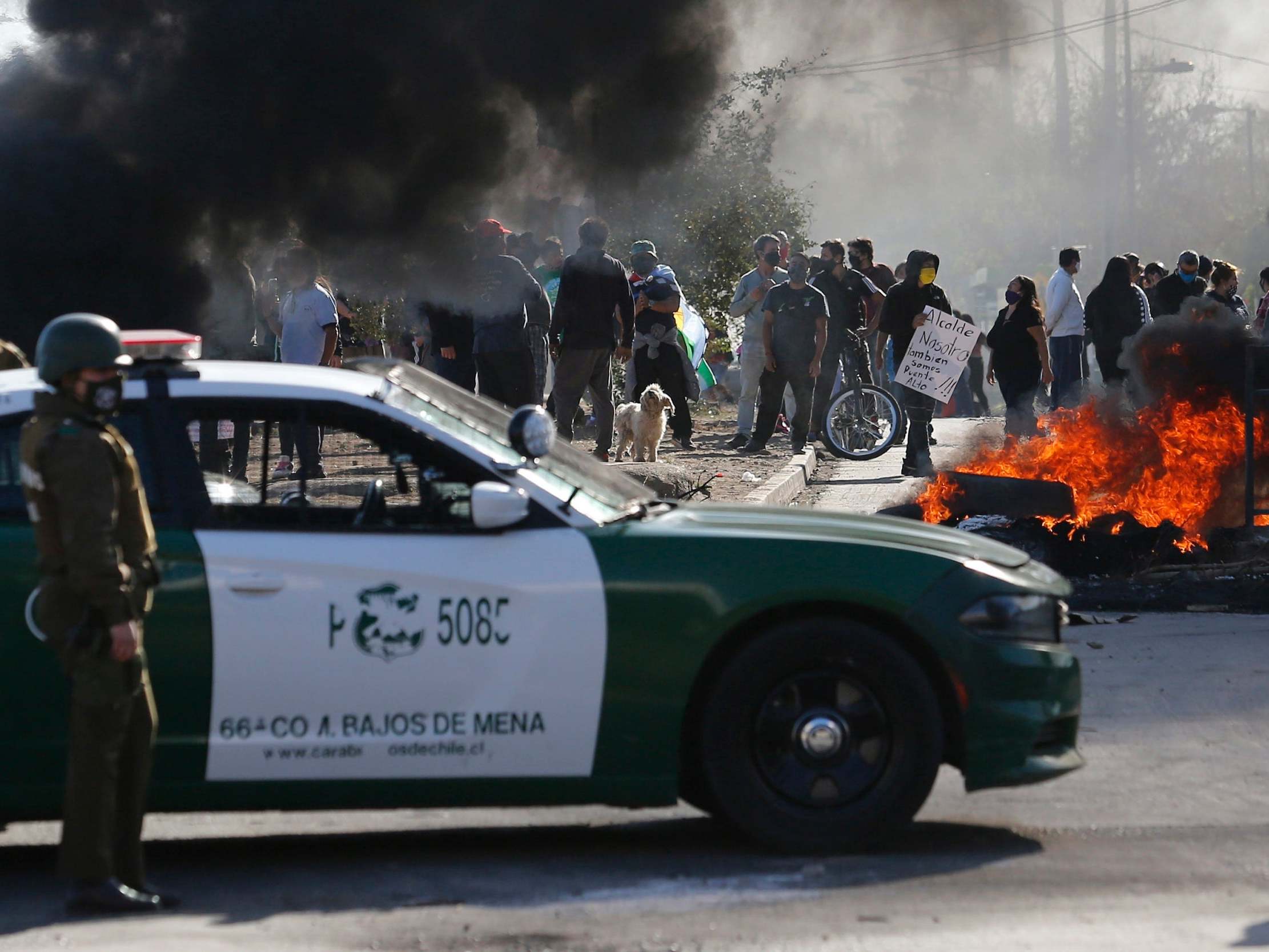Civil unrest has doubled worldwide in a decade, says Global Peace Index
Humanity ‘at critical juncture’ as coronavirus pandemic threatens to ‘exacerbate humanitarian crises and aggravate and encourage disorder’

Civil unrest has doubled worldwide in the past decade as protests rage over economic hardship, political turmoil and police brutality, according to a global peace index.
Tensions are likely to increase further in the coming months and years as the coronavirus pandemic pushes more people into unemployment and widens inequality, warned the Institute for Economics and Peace (IEP), which publishes the report annually.
The 2020 Global Peace Index recorded violent protest in 58 per cent of countries last year, an increase which researchers noted “reflects a longer-term trend”.
Riots were up 282 per cent last year compared to 2011, while general strikes rose 821 per cent. Europe saw the most protests and strikes, although only about one-third were recorded as violent, the lowest proportion in the world.
The index identified South America as suffering the largest deterioration in peacefulness during 2019 due to growing militarisation and worsening security in nations such Brazil, Chile and Ecuador, where police have violently suppressed demonstrations. However, the Middle East and North Africa remains the least peaceful region.
The once-stable west African nation Benin saw the largest deterioration of any single country by the index's metrics, falling 34 places to 106 following a year which saw a disputed election, arrests of political activists and violent crackdowns on peaceful protests.
The IEP said Covid-19 posed a threat to peace worldwide and had “the potential to undo years of socio-economic development, exacerbate humanitarian crises and aggravate and encourage unrest and conflict”.
Steve Killelea, founder of the IEA, warned the world was “at a critical juncture”.
He said: “The fundamental tensions of the past decade around conflict, environmental pressures and socio-economic strife remain. It’s likely that the economic impact of Covid-19 will magnify these tensions by increasing unemployment, widening inequality and worsening labour conditions – creating alienation from the political system and increasing civil unrest.”
Researchers warned the financial impact of the global lockdown was a particularly significant threat to peace in fragile and conflict-stricken countries including Liberia, Afghanistan and South Sudan, which could lose out on international aid as the economics of wealthier nations contract.
Countries with poor credit ratings, such as Brazil, Pakistan and Argentina, may also struggle to borrow, repay debt and sustain their economies, “leading to increased risk of political instability, riots and violence”, the index said.
However, the report noted economically stable countries such as the US, Germany and France were also seeing protests linked to coronavirus.
It added that the economic impact of Covid-19 “may have a more positive impact on proxy wars, as they become harder to finance amid economic decline and falling oil prices”.
“Saudi Arabia’s activity in Yemen, Russian and Turkish intervention in Syria and Iran’s support for militias such as Hezbollah will all be notable examples to track in the year ahead,” the report said.
The index also warned of potentially “catastrophic” environmental threats to peace, estimating that 27 per cent of the world was at risk of water shortages and 22 per cent at risk of food shortages.
Of the roughly 2.26 billion people living in areas with high climate likelihood of climate impacts, around 1.24 billion are in countries which already have low levels of peace.
Iceland remains the most peaceful country in the world, a position it has held since 2008, and is joined at the top of the index by New Zealand, Austria, Portugal, and Denmark.
Afghanistan was named the least peaceful country the second year running, followed by Syria, Iraq and South Sudan.
But the terrorism death toll is continuing to fall, the index noted. There were just over 8,000 deaths attributed by terrorism in 2019, down from a high of 33,555 in 2015.
Join our commenting forum
Join thought-provoking conversations, follow other Independent readers and see their replies
Comments